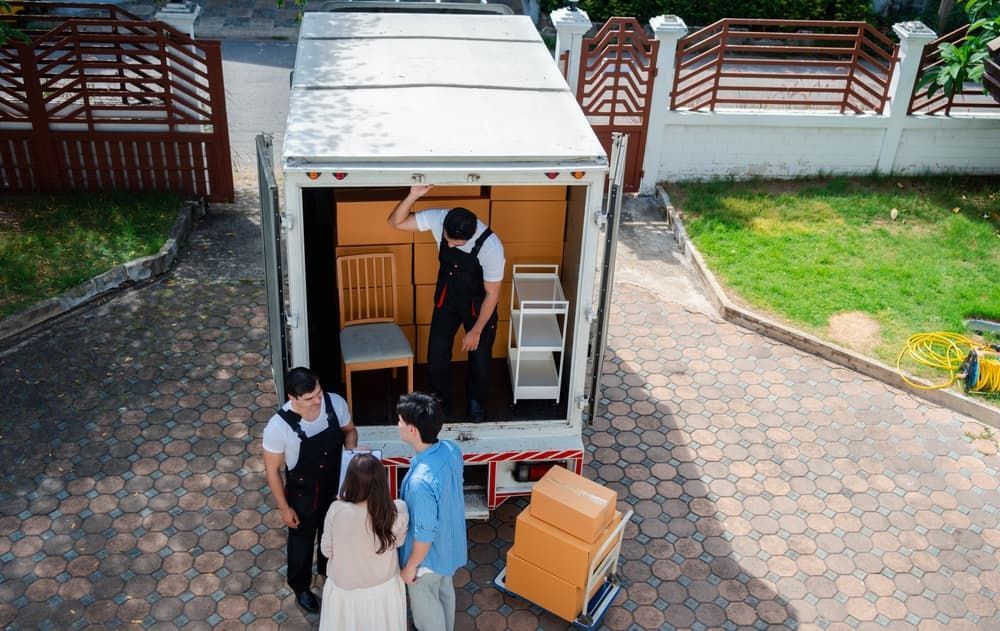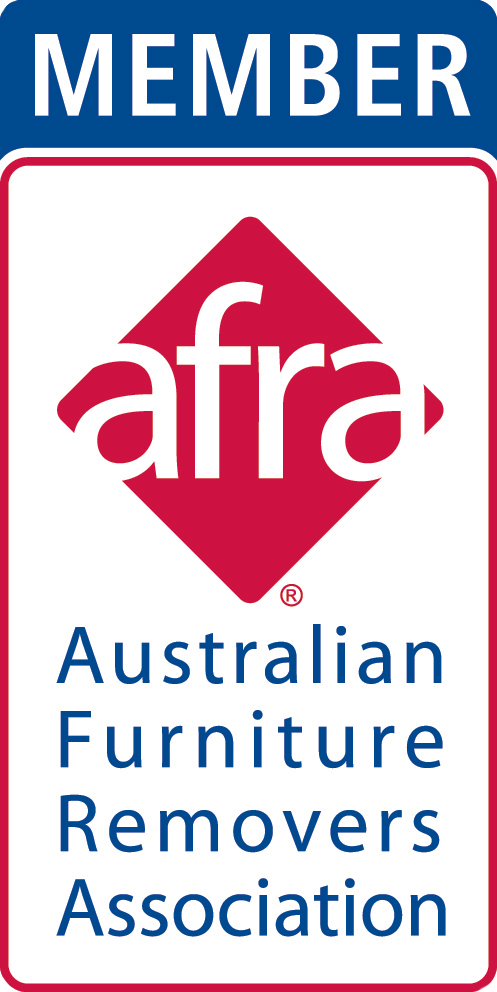What Items Should You Not Pack for an Interstate Move?
Preparing for an interstate move requires more than boxing up your belongings. Knowing what not to pack is equally important. Some items are unsafe, transport regulations restrict others, and a few are simply impractical to take with you. Leaving these behind, disposing of them properly, or finding alternatives will save you from fines, delays, and unnecessary stress. Below, we’ll walk through the main categories of items to avoid packing when moving interstate and practical removalist tips to keep your relocation on track.

Hazardous Materials That Put Everyone at Risk
Household items that are flammable, explosive, or corrosive pose a serious safety risk in transit. Even small leaks or fumes can be dangerous inside a removal truck.
Common hazardous items to leave out include:
- Petrol, kerosene, and diesel
- Paints, paint thinners, and turpentine
- Fireworks and explosives
- Gas cylinders, propane bottles, and aerosols
- Household chemicals such as bleach or ammonia
These substances are not only unsafe but also prohibited by transport regulations. Before moving day, check your shed, garage, and cupboards for leftover products. Use them beforehand or take them to a local disposal facility where possible. Never attempt to sneak them into boxes—they put both your belongings and removalists at risk.
Perishable Foods That Won’t Survive the Journey
Food may seem harmless, but perishables don’t cope well with long-distance moves. Fresh produce, dairy, and frozen items spoil quickly, especially during hot weather. They can also attract pests, leak onto furniture, and create unpleasant odours.
Food items to avoid packing:
- Fresh fruit and vegetables
- Meat, seafood, and dairy products
- Frozen food and ice cream
- Open jars, sauces, and liquids
- Half-used pantry staples not sealed properly
Instead, plan your meals in the weeks before moving to minimise leftovers. Consider donating unopened non-perishables to a local charity or food bank. Once you arrive, you can restock fresh groceries without the stress of spills or spoilage.
Plants & Garden Items Subject to Restrictions
It is tempting to take potted plants and garden cuttings with you, but many states have strict biosecurity rules. Moving plants, soil, or seeds can introduce pests and diseases into new environments.
Garden items to reconsider:
- Potted plants with soil
- Garden compost and mulch
- Seeds, bulbs, and cuttings
- Outdoor furniture with soil residue
Check the quarantine laws in your destination state before making decisions. In some cases, you may be able to bring plants if they meet specific requirements, but often it’s easier to start fresh in your new garden. Transporting empty pots, garden décor, and tools is usually fine once they’re cleaned thoroughly.
Firearms, Ammunition & Restricted Items
Certain items require special handling and cannot be transported with household goods. Firearms, ammunition, and explosives fall into this category.
Restricted goods include:
- Licensed firearms and ammunition
- Fireworks and flares
- Hunting knives or prohibited weapons
If you own firearms, you must organise legal transfer through approved carriers or authorities. These cannot simply be boxed up with furniture. Similarly, fireworks and other restricted goods must be left behind, as moving them across borders can result in fines.
Valuable & Irreplaceable Items
Not everything is banned, but some things are simply too valuable or personal to hand over to removalists. Important paperwork and sentimental belongings are safer in your own care.
Examples of what to keep with you:
- Jewellery, watches, and collectables
- Birth certificates, passports, and wills
- Financial documents, insurance papers, and medical records
- Family heirlooms and sentimental keepsakes
Carrying these yourself ensures they won’t be misplaced, damaged, or delayed in transport. Use a lockbox, personal bag, or secure backpack for peace of mind.
Items With a High Risk of Leaks or Spills
Although everyday household products such as shampoo bottles, cooking oils, and detergents may not seem dangerous, they can easily leak during transport. Even a small spill can ruin fabrics, stain furniture, or soak through moving boxes.
Items at risk of leaking:
- Cleaning liquids and sprays
- Cooking oils and sauces
- Toiletries such as shampoos, conditioners, and lotions
- Nail polish, perfumes, and cosmetics
Avoid transporting half-used bottles. Instead, take only unopened items with secure seals or restock after your move. Dry goods such as powders, tablets, and bars are safer options.
Large Gas Appliances & BBQ Cylinders
Gas-powered appliances and BBQ cylinders fall under restricted goods. They pose an explosion risk and are not permitted on moving trucks.
Items to leave behind or arrange separately:
- BBQ gas bottles (even if empty)
- Portable heaters or stoves with gas attachments
- Large appliances with fixed gas connections
If you’re moving appliances such as heaters or ovens, hire a licensed technician to disconnect and prepare them properly. Cylinders should be returned to suppliers or disposed of at approved collection points.
Pets & Live Animals
It may seem obvious, but pets cannot travel in a removal truck. Animals need ventilation, food, and care, none of which are possible inside moving containers.
Options for moving pets:
- Transport them in your own vehicle with breaks along the way
- Book a professional pet transport service
- Prepare carriers with water, bedding, and comfort items
Similarly, live fish, reptiles, or small mammals should be handled through specialised services. Always plan aor their comfort and safety.
Why Professional Guidance Matters
Packing for an interstate move involves more than just boxing up belongings. Transport regulations, safety concerns, and practical considerations mean some things are better left behind. Attempting to take restricted items can cause unnecessary stress, potential fines, and even delays to your relocation.
Professional removalists can guide you through:
- Identifying restricted goods
- Offering alternatives and safe disposal options
- Advising on practical packing strategies
- Ensuring compliance with regulations
By following their advice, you’ll avoid complications and enjoy a smoother moving experience.
Rely on Our Interstate Removalists in Coffs Harbour for a Stress-Free Move
At Lite Moves Furniture Removals, we make interstate relocations simple and stress-free. As trusted interstate removalists in Coffs Harbour, we know exactly what can and cannot be packed, and we’ll guide you through the process with practical moving checklist advice. From safe transport of your belongings to compliance with regulations, our team ensures your move runs smoothly from start to finish.
If you’re planning an interstate move, get in touch via our contact page or give us a call to book a consultation.






